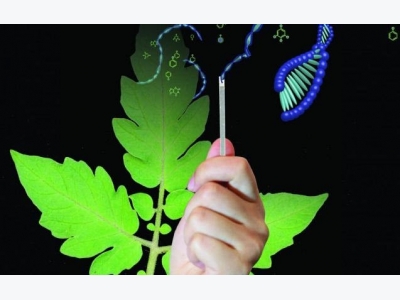Dipstick technology could revolutionize disease diagnosis

The dipstick can purify DNA and RNA from plant, animal and microbe samples in less than 30 seconds. Credit: Michael Mason
Dipstick can purify DNA and RNA from plant, animal and microbe samples in under 30 seconds.
New dipstick technology that enables pathogen detection and the rapid diagnosis of human, animal and plant disease in even the most remote locations has been developed by University of Queensland (UQ) scientists in Australia.
UQ School of Agriculture & Food Sciences research professor Jimmy Botella said the technology could extract DNA and RNA from living organisms in as few as 30 seconds without specialized equipment or personnel.
"We have successfully used the dipsticks in remote plantations in Papua New Guinea to diagnose sick trees and have applied it to livestock, human samples, pathogens in food and in detecting environmental risks such as Escherichia coli-contaminated water," he said. "This technology will give people in developed and developing nations a new way of tackling a range of agricultural, health and environmental problems."
Botella, who led the research team with Dr. Michael Mason, said current commercial kits could isolate DNA and RNA through a long and cumbersome process requiring specialized laboratory equipment that was impractical in the field.
The UQ research team initially developed the dipstick technology for particular plants and later found that it could purify DNA from many agriculturally important species.
"We found it had much broader implications as it could be used to purify either DNA or RNA from human blood, viruses, fungi and bacterial pathogens from infected plants or animals," Botella said.
UQ's commercialization company, UniQuest, has filed a patent application on the dipstick technology and is seeking commercial partners to help make it broadly available.
"Our technology eliminates the need for a specialized laboratory for sample preparation and is a lot simpler, faster and cheaper than anything else available, making diagnostics accessible to everyone," Botella said. "Our dipsticks, combined with other technologies developed by our group, mean the entire diagnostic process -- from sample collection to final result -- could be easily performed in a hospital, farm, hotel room or even a remote area such as a tropical jungle."
The research behind the dipstick technology was published in PLOS Biology as "Nucleic Acid Purification from Plants, Animals & Microbes in Under 30 Seconds."
Có thể bạn quan tâm
 Global potato researches gather to find solutions for blackleg disease
Global potato researches gather to find solutions for blackleg disease They are trying to find a way to stop the blackleg potato disease which threatens the potato industry.
 Gene may aid high-yield, high-protein soybeans
Gene may aid high-yield, high-protein soybeans Leftovers can be valuable, like when soybean seed is crushed and the oil is extracted, what’s left is soybean meal, a source of high-quality protein.
 Startup fights food waste with travel companions for fruits and veggies
Startup fights food waste with travel companions for fruits and veggies This is the latest in a regular series exploring early-stage technologies and scientific developments that could play a role in corporate solutions to climate